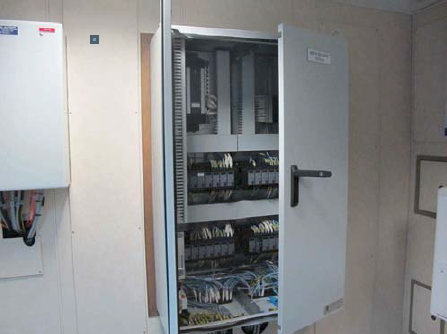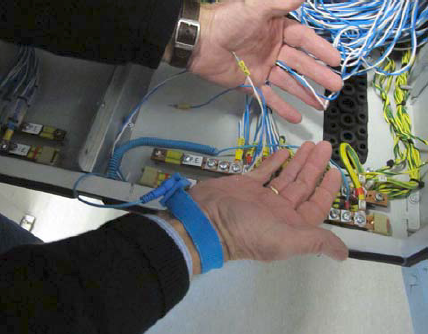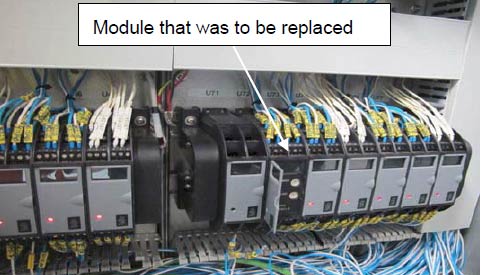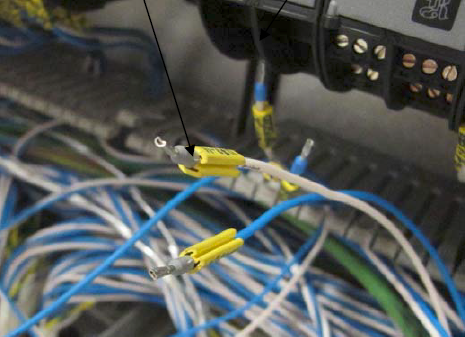Electric shock incident
A member has reported an incident in which a ship’s electrician received a 220V AC shock. The incident occurred when working on a 24V remote input/output (RIO) module on joy-stick electrical equipment. The electric shock was transmitted from the left hand to right hand due to the fact that the path of least resistance was across the body and to ground through the factory fitted anti-static earth strap. The electrician suffered minor burns to the left hand.




Our member noted the following:
- Live conductors should not be present at worksites if the correct controls are in place, and advice from the manufacturers of electrical equipment is always properly followed;
- Personal risk assessments were not adequate due to complacency in the task to be undertaken;
- Harm could be caused to any person when they are exposed to ‘live parts’ that are either touched directly or indirectly by means of some conducting object or material;
- Damage could be caused to electronic equipment when they are exposed to ‘live parts’ that are either touched directly or indirectly by means of some conducting object or material;
- As part of the isolation process the equipment had to be checked to ensure electrical energy had been isolated or disconnected from its source, this should be done using a voltage tester/probe and compatible proving unit;
- Although electrical tasks are undertaken on all members’ worksites on a regular basis, this incident acts as a reminder that live parts normal mains voltage, 230V AC, can cause; electrical burns, permanent injury and electric shocks, which can prove to be fatal.
Members may wish to refer to the following similar incidents (key words: electric, shock):
Safety Event
Published: 20 March 2015
Download: IMCA SF 04/15
IMCA Safety Flashes
Submit a Report
IMCA Safety Flashes summarise key safety matters and incidents, allowing lessons to be more easily learnt for the benefit of all. The effectiveness of the IMCA Safety Flash system depends on Members sharing information and so avoiding repeat incidents. Please consider adding safetyreports@imca-int.com to your internal distribution list for safety alerts or manually submitting information on incidents you consider may be relevant. All information is anonymised or sanitised, as appropriate.
IMCA’s store terms and conditions (https://www.imca-int.com/legal-notices/terms/) apply to all downloads from IMCA’s website, including this document.
IMCA makes every effort to ensure the accuracy and reliability of the data contained in the documents it publishes, but IMCA shall not be liable for any guidance and/or recommendation and/or statement herein contained. The information contained in this document does not fulfil or replace any individual’s or Member's legal, regulatory or other duties or obligations in respect of their operations. Individuals and Members remain solely responsible for the safe, lawful and proper conduct of their operations.
